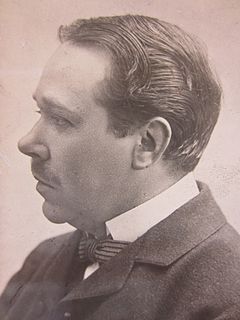Hjalmar Söderberg: A Master of Psychological Realism in Swedish Literature
Hjalmar Söderberg, born on July 2, 1869, in Stockholm, Sweden, is celebrated as one of the most significant and influential writers in Swedish literature. Renowned for his psychological depth and exploration of moral ambiguities, Söderberg's work, particularly his novel 'Doctor Glas,' continues to resonate with readers for its timeless examination of the human condition.

Early Life and Influences
Hjalmar Söderberg, one of Sweden's most celebrated authors, was born in 1869 in Stockholm, Sweden. Growing up in a middle-class family, Söderberg developed an early interest in literature, philosophy, and art. His exposure to the works of writers such as Fyodor Dostoevsky, Henrik Ibsen, and August Strindberg significantly influenced his literary style, which is characterized by its psychological insight and exploration of complex moral issues. Söderberg's introspective nature and fascination with human behavior would later become central themes in his writing, particularly in his novel 'Doctor Glas.'
Education and Early Career
Hjalmar Söderberg began his academic career at the University of Uppsala, where he studied a variety of subjects, including literature and philosophy. However, he found academic life unfulfilling and soon turned to journalism and writing as his primary pursuits. Söderberg's early works, such as 'The Serious Game' ('Den allvarsamma leken'), reflected his keen observations of societal norms and the struggles of individuals within a rapidly changing world. His writing style, marked by a blend of realism and psychological depth, quickly garnered attention, establishing him as a significant voice in Swedish literature.
Breakthrough with 'Doctor Glas': A Psychological Study
Söderberg achieved widespread recognition with the publication of 'Doctor Glas' in 1905. This novel, set in early 20th century Stockholm, offers a profound exploration of the human psyche through the eyes of Dr. Tyko Glas. The story revolves around the moral and ethical dilemmas faced by Dr. Glas as he considers committing murder to relieve a woman from her oppressive marriage. The novel's deep psychological insights and exploration of moral ambiguity made it a groundbreaking work in Swedish literature, drawing comparisons to the works of Dostoevsky and Ibsen. Today, 'Doctor Glas' is regarded as one of the most important novels in the Swedish literary canon.
Read moreSöderberg's Other Works and Personal Struggles
While 'Doctor Glas' remains Söderberg's most famous work, his literary output includes other notable novels, short stories, and plays. His novel 'The Serious Game' is another classic that explores themes of love, passion, and societal expectations. Throughout his life, Söderberg struggled with personal issues, including a deep sense of alienation and a growing disillusionment with society. These struggles often found their way into his writing, adding a layer of authenticity and emotional depth that resonates with readers.
Legacy and Lasting Impact
Hjalmar Söderberg passed away in 1941, but his influence on Swedish literature endures. His works are studied in schools and universities and continue to be read by new generations of readers. Söderberg's exploration of the human condition, his insights into moral and psychological dilemmas, and his elegant prose style have secured his place as a timeless figure in literature. His novel 'Doctor Glas' remains a touchstone for discussions about ethics, psychology, and the darker aspects of human nature.
